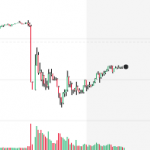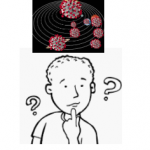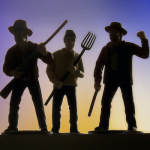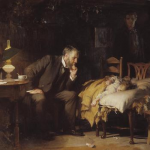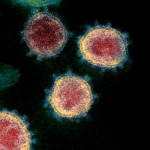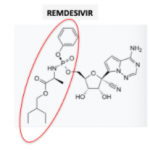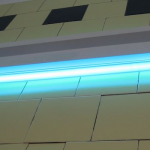Being anti-science and anti-technology is a luxury for when times are good. In times of crisis, people beg for help from scientists, doctors, and pharmaceutical companies.
coronavirus
Preliminary data, obtained from a randomized clinical trial of remdesivir in China, look bad. Maybe even very bad. But this doesn't mean that the drug won't be shown to be useful in other trials. Nonetheless, not good news.
Should we open up the economy immediately or remain on lockdown indefinitely until a vaccine is made? Believe it or not, there are other options. It's too bad that society isn't smart enough to understand that.
Remdesivir, the most promising anti-coronavirus drug at this time is no fun to synthesize. But Gilead, the drug's maker, is synthesizing a whole bunch of it. Does this tell us anything about whether the drug works? Maybe.
A recent poll shows that 78% of Americans support stay-at-home orders. As the economy comes crashing down to levels not seen since the Great Depression, our social fabric will begin to rip, and the public will change its mind.
So much news, so much confusion and so many questions – especially those around what different terms mean. What exactly is a therapy for COVID-19? Is it a cure, or something else, like a vaccine? To help sort it out, we prepared this summary; it may help a bit. And to go with it, a riddle: What do you call anti-vaxxers once a coronavirus vaccine becomes available?
The coronavirus pandemic has devolved into just another partisan battle. In the process, it has revealed how poorly served Americans are by their leaders and the media.
Early clinical trial results from Gilead show that its antiviral drug, remdesivir, has promise in treating patients with severe COVID-19. Though there are major caveats, there is good reason for cautious optimism.
Why are basic questions about the biology of SARS-CoV-2 so hard to answer?
Dr. Derek Lowe, arguably the finest and most influential chemistry blogger in the universe, has put together an excellent summary of the complex and confusing clinical data of hydroxychloroquine, which he published recently in his blog in Science and Translational Medicine. We thank Derek and AAAS for allowing us to reprint this important article.
The world anxiously awaits while clinical trials of remdesivir are in progress. The drug failed to stop Ebola. Does this mean it will also fail to stop coronavirus? No. According to a new study in the Journal of Biological Chemistry, the drug should work better. Here's why.
A South Korean company named Seoul Semiconductor claims to have developed an ultraviolet light-emitting diode (UV LED) that can kill 99.9% of SARS-CoV-2 in 30 seconds.

